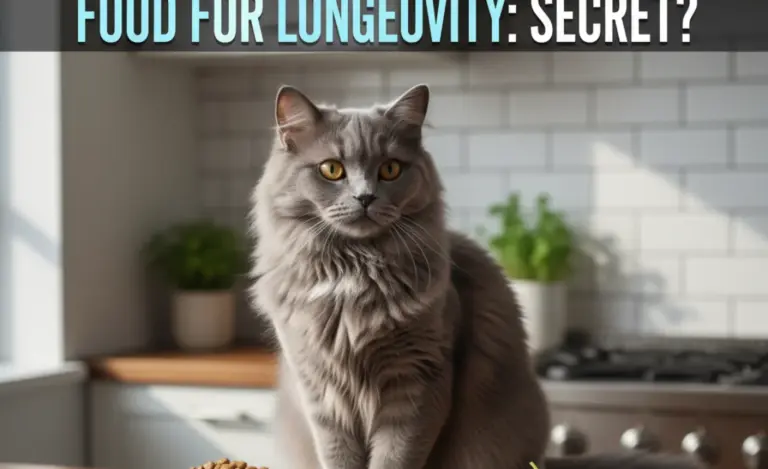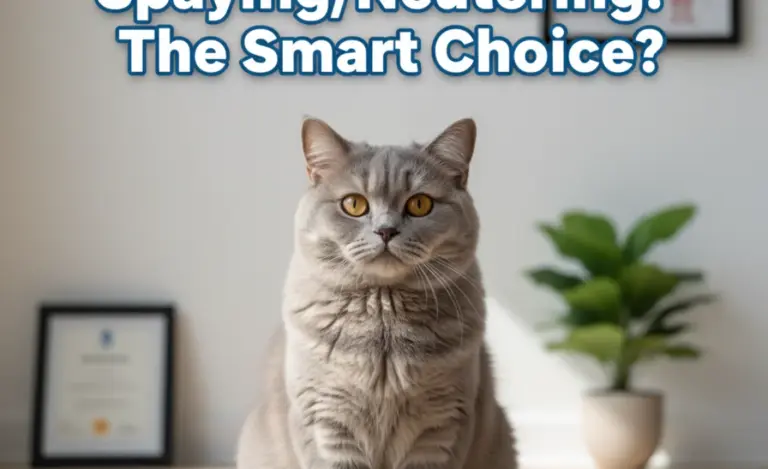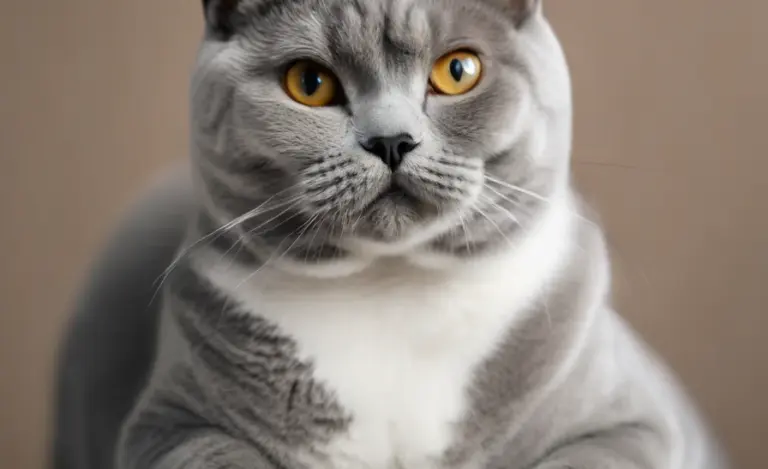British Shorthair Vaccination Requirements: Simple Guide
Core vaccines are essential for all British Shorthairs, protecting against feline panleukopenia (FPV), feline calicivirus (FCV), and feline herpesvirus (FHV-1). A kitten series starts around 6-8 weeks, with boosters every 3-4 weeks until 16 weeks old, then a booster at one year, followed by boosters every one to three years. The rabies vaccine is also often legally required. Non-core vaccines, like those for FeLV and Chlamydophila, are given based on your cat’s lifestyle and risk factors after consulting your vet.
Bringing a British Shorthair into your family is such an exciting time! You’re probably picturing all the cuddles and playtime ahead. But, like all cats, British Shorthairs need the right healthcare to stay healthy and happy. Vaccinations are a key part of this, protecting your new furry friend from some really nasty diseases. It can all seem a bit confusing, with different vaccines and schedules. Don’t worry! I’m here to guide you through everything you need to know, step by step, so you can feel confident you’re giving your British Shorthair the best possible start in life.
Understanding Core Vaccinations for British Shorthairs
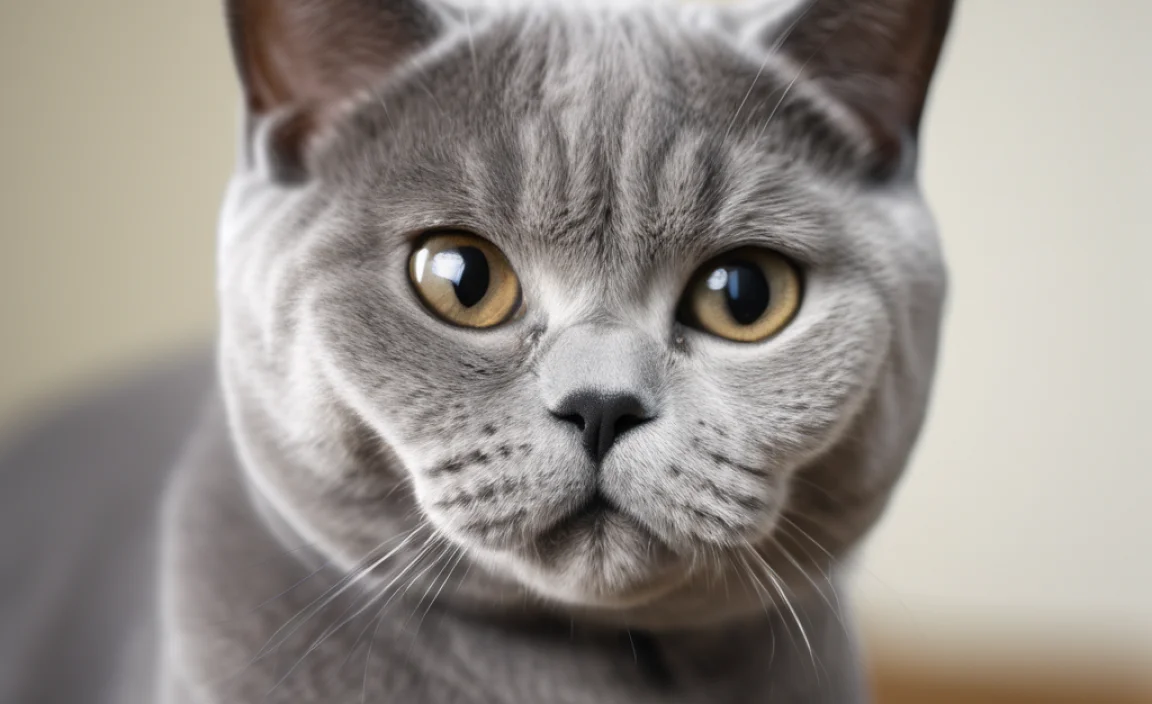
Core vaccines are those considered vital for all cats, regardless of their lifestyle. These vaccines protect against diseases that are widespread, highly contagious, and potentially fatal.
Feline Panleukopenia (FPV)
Also known as feline distemper, panleukopenia is caused by the feline parvovirus. It’s a highly contagious viral disease that affects rapidly dividing cells in the body, such as those in the bone marrow, intestines, and developing fetus. According to the Cornell Feline Health Center, FPV can cause severe vomiting, diarrhea, dehydration, and a significantly weakened immune system. It’s often fatal, especially in kittens.
Feline Calicivirus (FCV) and Feline Herpesvirus (FHV-1)
These viruses are major causes of upper respiratory infections in cats, often referred to as “cat flu.” FCV causes oral ulcers, sneezing, nasal discharge, and sometimes pneumonia. FHV-1, also known as feline viral rhinotracheitis, leads to similar symptoms, including conjunctivitis (inflammation of the eyes). Both viruses are highly contagious and spread through direct contact with infected cats or contaminated surfaces. While not always fatal, these infections can be very uncomfortable and can become chronic in some cats. The RSPCA notes that kittens and older cats are particularly vulnerable.
Core Vaccination Schedule for British Shorthair Kittens
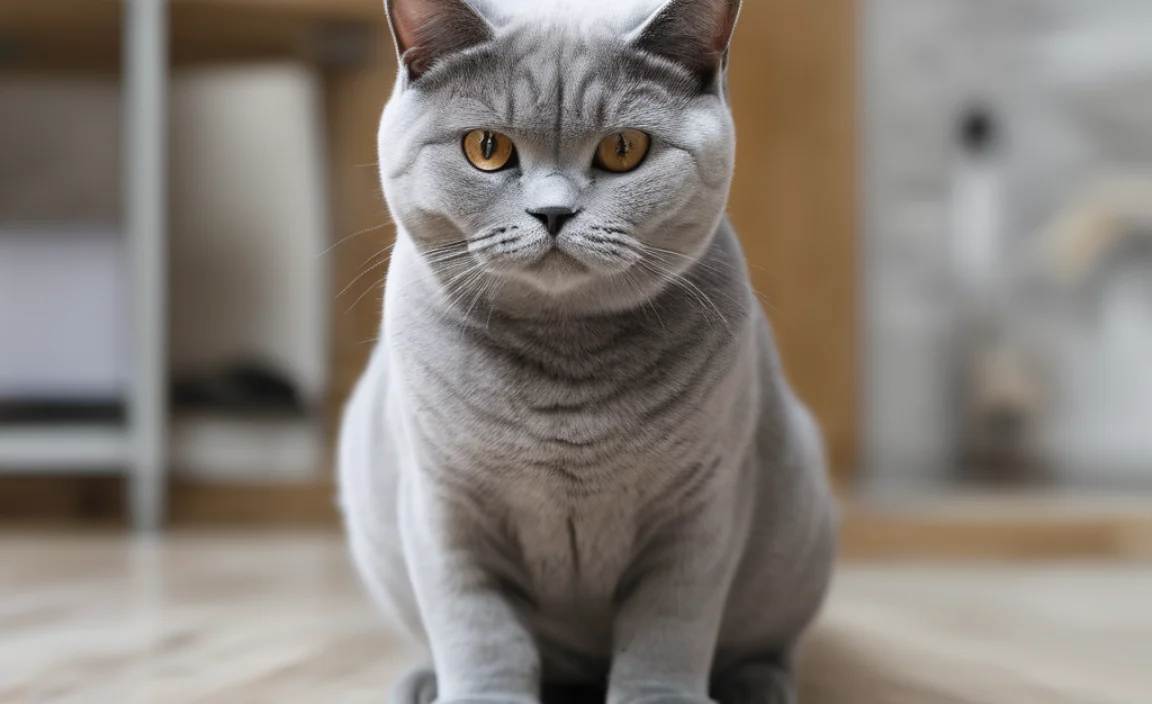
The core vaccination schedule typically starts when kittens are around 6-8 weeks old. This is because kittens receive antibodies from their mother’s milk, which provide temporary protection. However, these maternal antibodies gradually decline, leaving the kitten vulnerable to infection.
Here’s a typical vaccination schedule:
- First vaccination: 6-8 weeks old (FVRCP)
- Second vaccination: 10-12 weeks old (FVRCP)
- Third vaccination: 14-16 weeks old (FVRCP)
- Rabies vaccination: Given according to local regulations, typically between 12-16 weeks old.
- Booster vaccination: One year after the initial kitten series.
- Subsequent boosters: Every 1-3 years, depending on the vaccine type and your vet’s recommendations.
Important Note: Always consult with your veterinarian to determine the best vaccination schedule for your British Shorthair kitten. They will consider your kitten’s individual health status, lifestyle, and local disease prevalence.
Understanding Non-Core Vaccinations for British Shorthairs
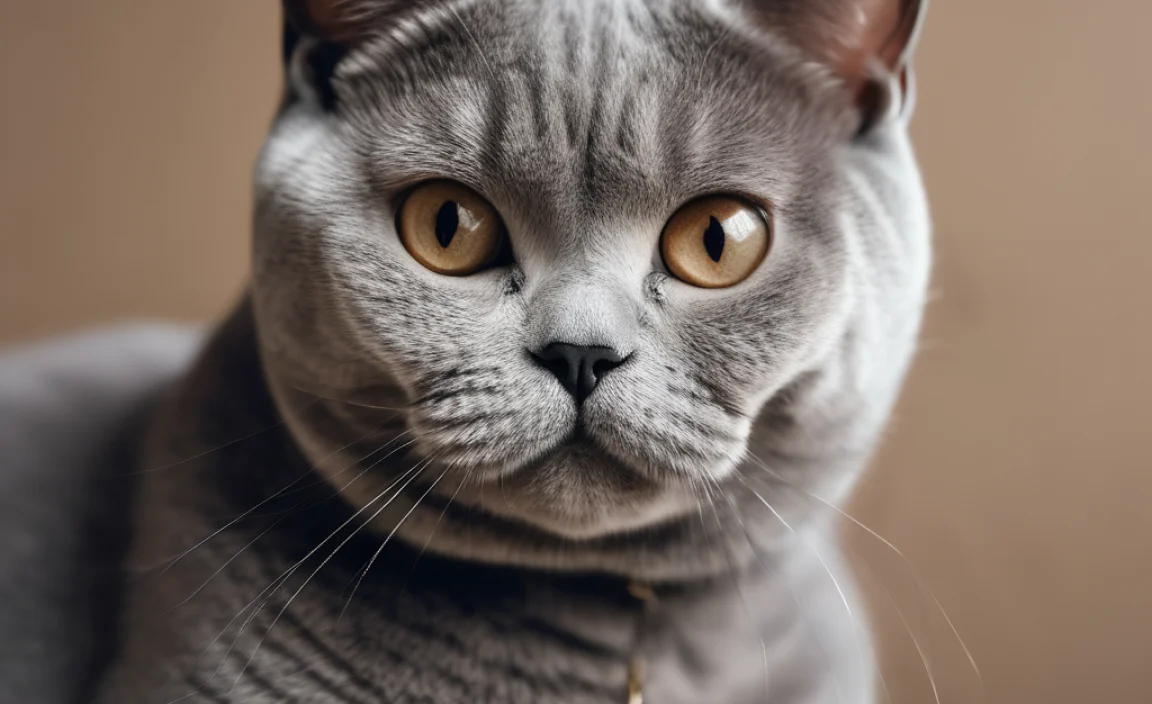
Non-core vaccines are recommended based on your cat’s individual risk of exposure to certain diseases. These vaccines are not considered essential for all cats but can be crucial for those at higher risk.
Feline Leukemia Virus (FeLV)
FeLV is a retrovirus that weakens a cat’s immune system, making them susceptible to various infections and cancers. It’s spread through saliva, nasal secretions, urine, and feces. Cats who go outdoors, live in multi-cat households, or are exposed to unknown cats are at higher risk of FeLV infection. According to Purina, FeLV can cause a range of health problems, including anemia, lymphoma, and immune deficiency.
Chlamydophila felis
Chlamydophila felis is a bacterial infection that causes conjunctivitis (inflammation of the eyes) and upper respiratory symptoms in cats. It’s highly contagious, especially in multi-cat environments. Symptoms include sneezing, nasal discharge, and watery eyes. While usually not life-threatening, Chlamydophila felis can be uncomfortable and require antibiotic treatment.
Bordetella bronchiseptica
Bordetella bronchiseptica is a bacterium that causes respiratory infections in cats, similar to kennel cough in dogs. It’s more common in cats who are housed in close proximity to other cats, such as in shelters or boarding facilities. Symptoms include coughing, sneezing, and nasal discharge.
Non-Core Vaccination Recommendations
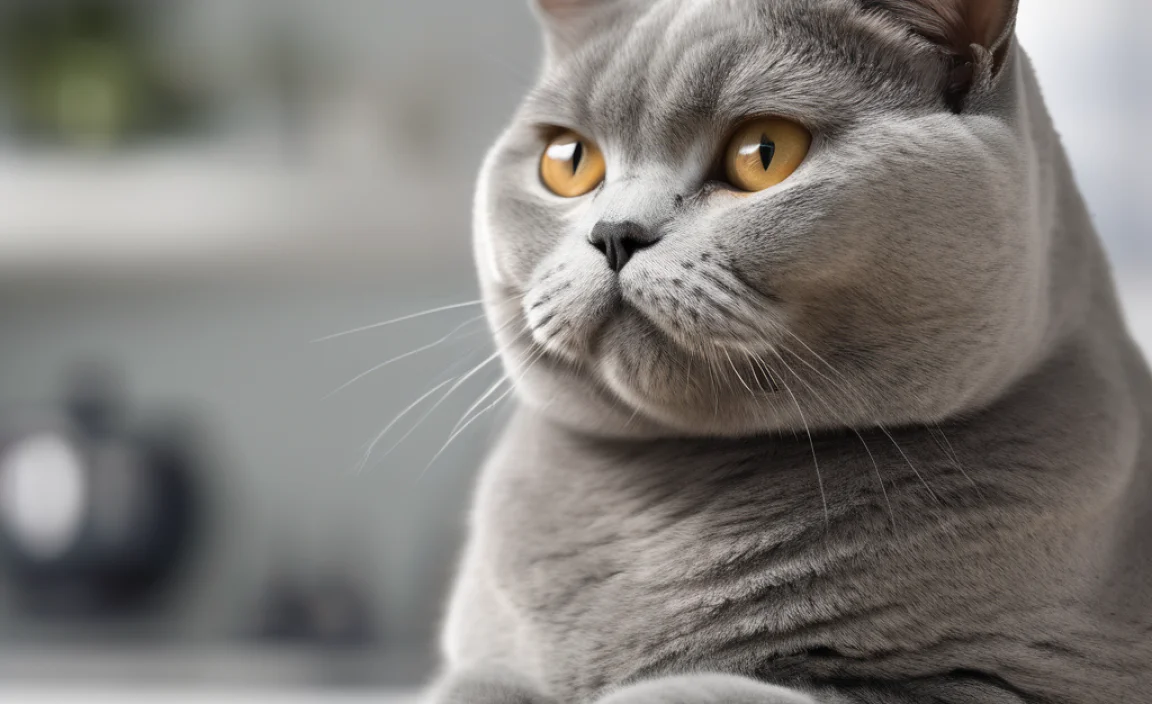
Whether or not your British Shorthair needs non-core vaccinations depends on their lifestyle and risk factors. Here’s a general guideline:
- FeLV vaccination: Recommended for kittens and cats who go outdoors, live in multi-cat households, or are exposed to unknown cats.
- Chlamydophila felis vaccination: May be recommended for cats in multi-cat environments, such as shelters or catteries, where the risk of infection is higher.
- Bordetella bronchiseptica vaccination: May be recommended for cats who are frequently boarded or exposed to other cats in close proximity.
Discuss your cat’s lifestyle and risk factors with your veterinarian to determine which non-core vaccines are appropriate.
Vaccination Schedule for Non-Core Vaccines
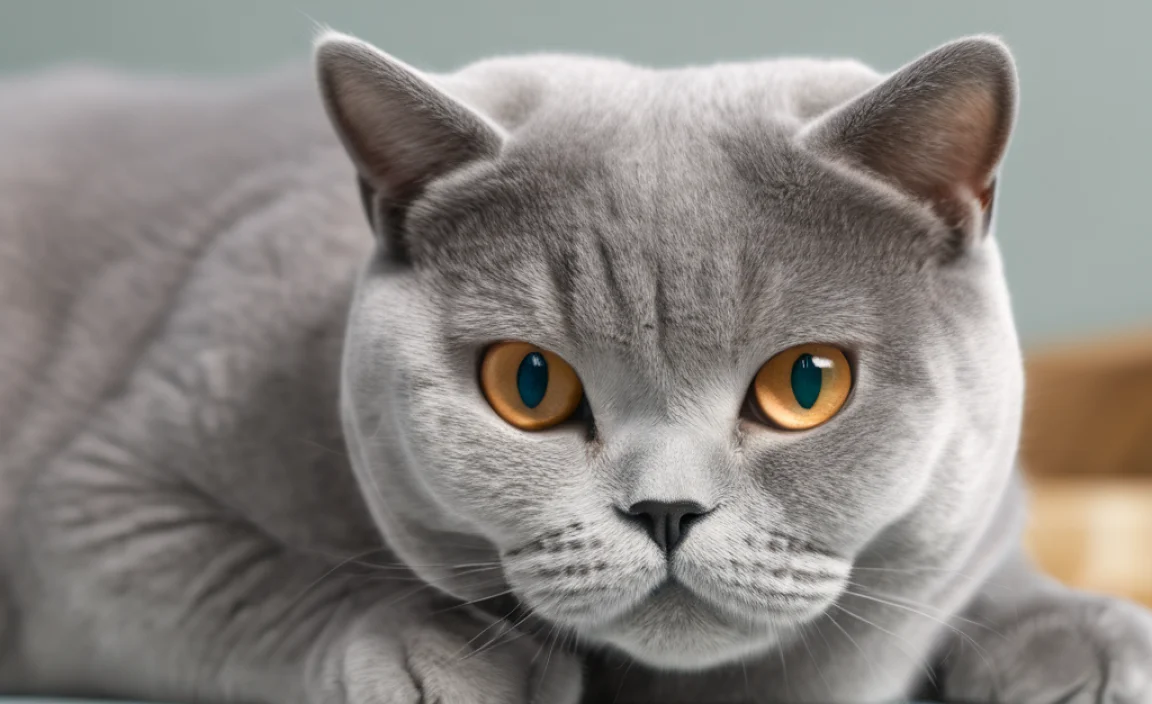
If your veterinarian recommends non-core vaccines for your British Shorthair, they will advise you on the appropriate vaccination schedule. Here’s a general idea of non-core vaccine schedules:
- FeLV: Two initial doses, 3-4 weeks apart, followed by annual or bi-annual boosters, depending on risk.
- Chlamydophila felis: Two initial doses, 3-4 weeks apart, followed by annual boosters.
- Bordetella bronchiseptica: One initial dose, followed by annual boosters if needed.
The Importance of Booster Vaccinations for British Shorthairs
Booster vaccinations are essential for maintaining immunity against diseases. The protection provided by initial vaccinations gradually wanes over time, so booster shots are needed to “boost” the immune system and ensure continued protection.
The frequency of booster vaccinations depends on the vaccine type and your veterinarian’s recommendations. Some vaccines provide protection for one year, while others provide protection for three years. Your vet will advise you on the appropriate booster schedule for your British Shorthair.
Potential Side Effects of Vaccinations
Vaccinations are generally safe, but like any medical procedure, they can sometimes cause side effects. Most side effects are mild and temporary, such as:
- Soreness or swelling at the injection site
- Mild fever
- Lethargy
- Decreased appetite
These side effects usually resolve within a few days. However, in rare cases, more serious side effects can occur, such as:
- Allergic reaction (hives, facial swelling, difficulty breathing)
- Vomiting or diarrhea
- Anaphylaxis (a severe, life-threatening allergic reaction)
If you notice any signs of a serious side effect after your cat receives a vaccination, contact your veterinarian immediately.
What to Expect During a Vaccination Appointment
During a vaccination appointment, your veterinarian will perform a physical examination to ensure your cat is healthy enough to receive the vaccines. They will also ask you about your cat’s lifestyle and risk factors to determine which vaccines are appropriate.
The veterinarian will administer the vaccines via injection, usually in the scruff of the neck or in a hind leg. The procedure is quick and relatively painless. Your vet will monitor your cat for a few minutes after the vaccination to watch for any immediate adverse reactions.
Your veterinarian will provide you with a vaccination certificate, which documents the vaccines your cat has received and the dates they were administered. Keep this certificate in a safe place, as it may be required for travel, boarding, or veterinary care.
Creating a Vaccination Schedule
Creating a vaccination schedule is essential for tracking the doses your British Shorthair has received and when the next ones are due. Here’s a simple table you can use:
| Vaccine | Date Administered | Next Due Date | Veterinarian’s Notes |
|---|---|---|---|
| FVRCP | [Date] | [Date] | [Any specific notes from the vet] |
| Rabies | [Date] | [Date] | [Any specific notes from the vet] |
| FeLV | [Date] | [Date] | [Any specific notes from the vet] |
Keep this table updated and readily available for reference.
Tips for a Stress-Free Vaccination Visit
Many cats get stressed during vet visits, but here are a few things you can do to make the experience smoother for your British Shorthair:
- Get your cat used to the carrier: Leave the carrier out in your home with a comfortable blanket inside. Encourage your cat to enter the carrier voluntarily by placing treats or toys inside.
- Use calming aids: Consider using a feline pheromone spray or diffuser, such as Feliway, to help reduce anxiety.
- Bring your cat’s favorite toy or blanket: Familiar items can provide comfort and security.
- Stay calm and reassuring: Cats can sense your anxiety, so try to remain calm and speak to your cat in a soothing voice.
- Reward your cat after the visit: Offer a special treat or playtime session to reinforce positive associations with the vet.
The Cost of Vaccinations for British Shorthairs
The cost of vaccinations can vary depending on several factors, including your location, the veterinary clinic, and the specific vaccines administered. Core vaccines typically cost between $75 to $100 per shot, while non-core vaccines may range from $20 to $40 per dose. Keep in mind that these are estimates, and the actual cost may vary.
Some veterinary clinics offer vaccination packages, which can help reduce the overall cost. Pet insurance can also help cover the cost of vaccinations and other preventative care.
Here’s an estimated breakdown of the costs involved in vaccinating your British Shorthair. These are rough estimates and can vary widely based on location and clinic.
| Service | Estimated Cost |
|---|---|
| Initial Kitten Vaccination Series (FVRCP, Rabies) | $150 – $300 |
| Annual Booster Vaccinations (FVRCP, Rabies) | $75 – $150 |
| FeLV Vaccination (Initial Series) | $40 – $80 |
| Veterinary Examination Fee | $50 – $100 |
Legal Requirements for Cat Vaccinations
In many locations, rabies vaccination is legally required for cats. Check with your local government or animal control agency to determine the specific vaccination requirements in your area. Even if rabies vaccination is not legally required, it’s still highly recommended to protect your cat and your community from this deadly disease.
Vaccinations for Indoor-Only British Shorthairs
Even if your British Shorthair lives exclusively indoors, vaccinations are still essential. Indoor cats can still be exposed to diseases through various means, such as:
- Contact with other animals: Even brief contact with an unvaccinated cat can transmit diseases.
- Contaminated objects: Viruses and bacteria can survive on surfaces for extended periods.
- Airborne transmission: Some respiratory viruses can spread through the air.
Core vaccines, such as FVRCP and rabies, are recommended for all cats, regardless of their lifestyle. Your veterinarian can advise you on whether any non-core vaccines are necessary for your indoor-only British Shorthair.
Special Considerations for British Shorthair Kittens
British Shorthair kittens are particularly vulnerable to infectious diseases due to their immature immune systems. It’s crucial to follow the recommended vaccination schedule and take extra precautions to protect your kitten from exposure to illness.
- Isolate your kitten: Keep your kitten separate from other animals until they have completed their initial vaccination series.
- Sanitize your home: Thoroughly clean and disinfect your home to remove any potential sources of infection.
- Wash your hands: Wash your hands thoroughly before and after handling your kitten.
Special Considerations for Senior British Shorthairs
As British Shorthairs age, their immune systems may become weaker, making them more susceptible to infections. However, vaccinating senior cats can be a bit more complex, as they may be more likely to experience adverse reactions.
Talk to your veterinarian about the risks and benefits of vaccinating your senior British Shorthair. They may recommend a modified vaccination schedule or blood tests to assess your cat’s immune status.
Common Mistakes to Avoid
Here are some common mistakes to avoid when it comes to vaccinating your British Shorthair:
- Skipping vaccinations: Don’t skip or delay vaccinations without consulting your veterinarian.
- Over-vaccinating: Avoid unnecessary vaccinations, as they can increase the risk of adverse reactions.
- Vaccinating a sick cat: Never vaccinate a cat who is ill or showing signs of illness.
- Ignoring side effects: Pay attention to any potential side effects after vaccination and contact your veterinarian if you have concerns.
British Shorthair Vaccination Requirements: FAQs
1. When should my British Shorthair kitten receive its first vaccinations?
Your kitten should receive their first core vaccinations (FVRCP) around 6-8 weeks old. These vaccines protect against feline panleukopenia, feline calicivirus, and feline herpesvirus.
2. Are rabies vaccinations required for British Shorthairs?
Rabies vaccinations are often legally required, but it depends on your local regulations. Check with your local animal control or government to know the specific requirements in your area.
3. What are non-core vaccines, and does my British Shorthair need them?
Non-core vaccines are optional and depend on your cat’s lifestyle. Common ones include FeLV (feline leukemia virus), Chlamydophila, and Bordetella. Talk to your vet to determine if your cat needs these.
4. How often do British Shorthairs need booster shots?
Booster schedules vary depending on the vaccine. Generally, a booster is given one year after the initial kitten series, then every 1-3 years. Your vet will advise on the best schedule.
5. What are the common side effects of cat vaccinations?
Most side effects are mild, such as soreness at the injection site, mild fever, or lethargy. These usually disappear within a day or two. Serious reactions are rare but require immediate vet attention.
6. Can indoor-only British Shorthairs skip vaccinations?
No, even indoor cats need core vaccinations. Diseases can still be transmitted through contact with other animals, contaminated objects, or even airborne particles.
7. How much do cat vaccinations typically cost?
Costs vary, but core vaccines typically range from $75 to $100 per shot. Non-core vaccines might be $20 to $40 per dose. Some clinics offer packages to help reduce the overall cost.
Conclusion
Vaccinating your British Shorthair is one of the most important things you can do to protect their health and well-being. By following the recommended vaccination schedule and working closely with your veterinarian, you can ensure that your feline friend stays healthy and happy for many years to come. Remember, prevention is always better than cure, and vaccinations are a safe and effective way to prevent serious diseases. So, schedule that vet appointment, give your kitty some extra love, and enjoy the peace of mind that comes with knowing you’re doing everything you can to keep your British Shorthair healthy!


